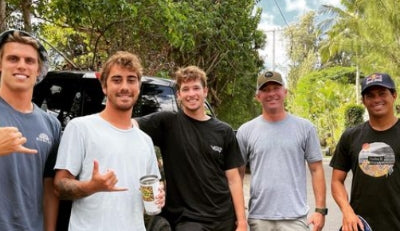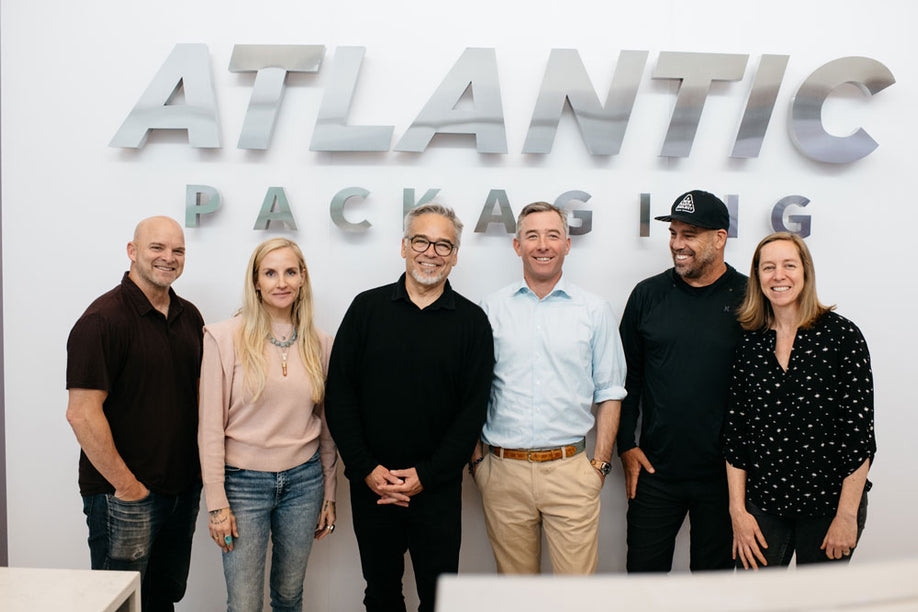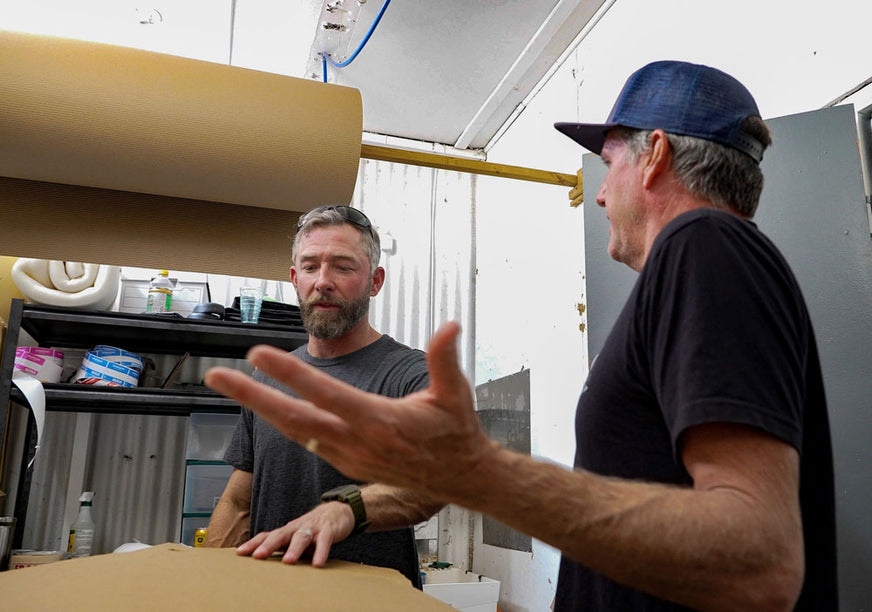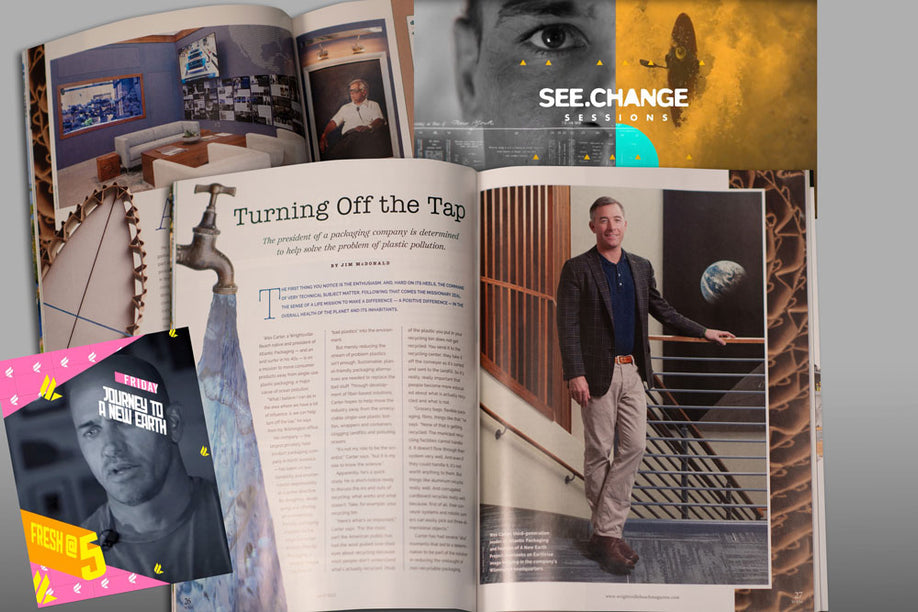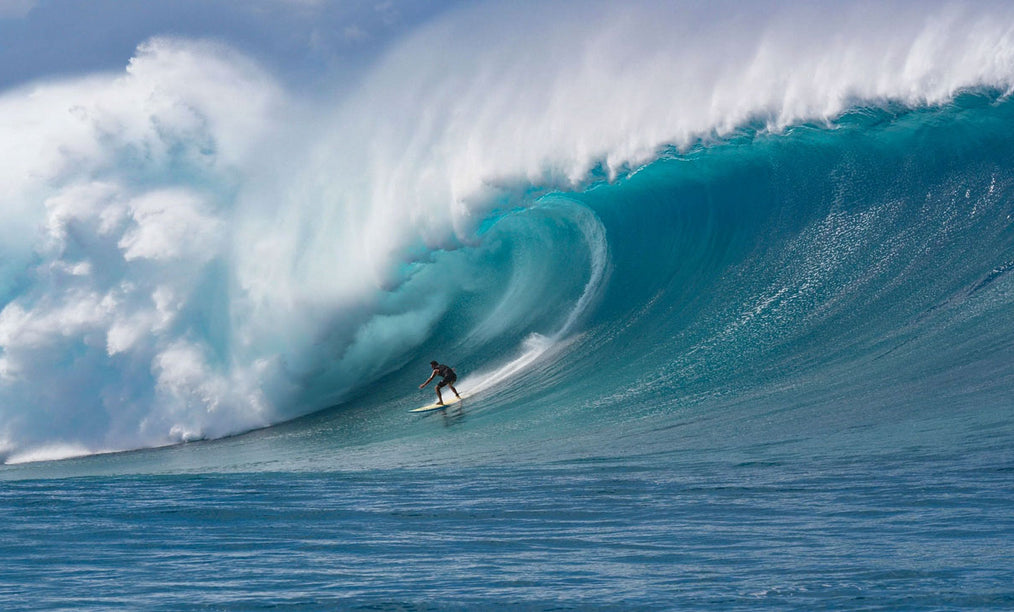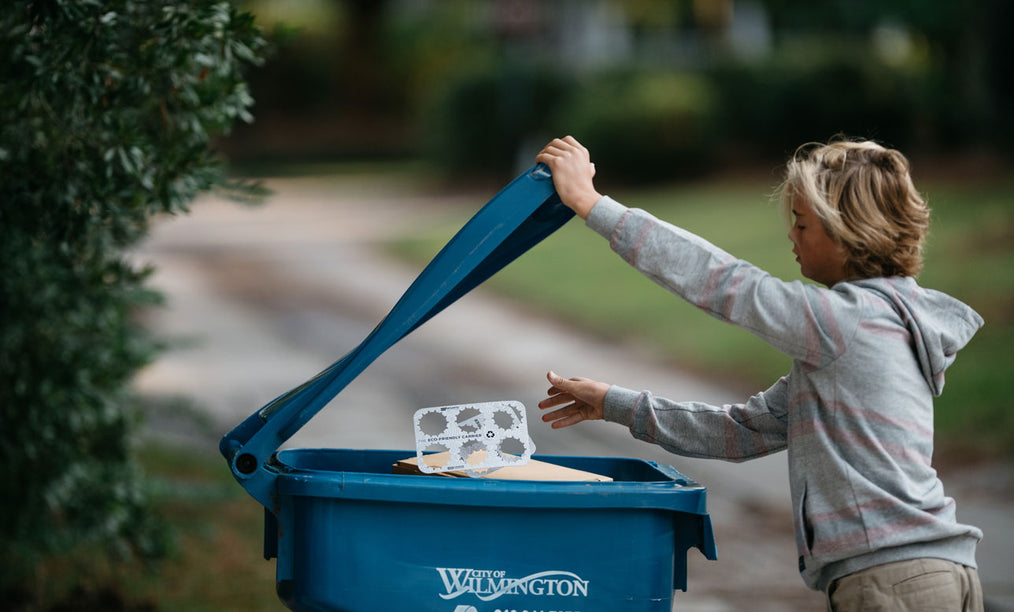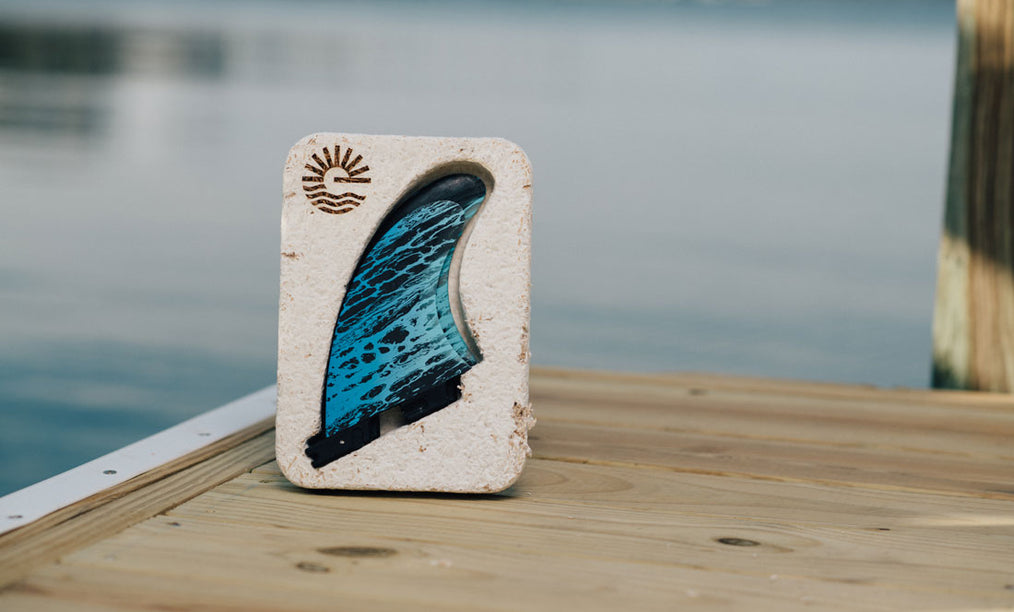After two years of collecting massive amounts of waste in the Great Pacific Garbage Patch, The Ocean Cleanup team is preparing to launch its full-scale catchment system, System 03, later this summer. The long-awaited introduction of System 03 is a massive milestone, as it is the rigorously tested model that will be scaled up and deployed in each of the five ocean gyres.
The Ocean Cleanup's System 002/C in action, is the final testing phase underway before the introduction of the long awaited System 03, due out later this summer.
In late May, the final cleanup mission for System 002/B reached Victoria, and The Ocean Cleanup team generously allowed our team to inspect their colossal haul.
For Caroline James, Sustainability Director at A New Earth Project and Atlantic Packaging, witnessing firsthand what The Ocean Cleanup is retrieving was astonishing. When asked what stood out, James was eager to share her thoughts.
"It's astounding to realize how old much of this plastic is," she explained. "A large portion has been floating for years, or even decades, getting tossed around by waves and sitting in the sun, where it slowly degrades. What we don't see are the billions of microplastics that have been shed before this plastic was collected."

When it comes to the great waste transition, Caroline James of A New Earth Project and Atlantic Packaging, is among those keeping the important conversations on course.
James emphasized the enormity of the challenge. "We're only seeing plastic that's recovered from the top four meters of the surface," she explained. "A significant amount of plastic in the ocean sinks below that level. We observed numerous bottle caps (usually PP, or #5 plastic, which floats), but many bottles (PET or #1 plastic) sink. What The Ocean Cleanup recovers is remarkable, but it's essential to remember it's only the tip of the iceberg."
To address this, The Ocean Cleanup and A New Earth Project are attacking the plastic waste problem from different points of the product lifecycle. If people like Caroline James can succeed in their roles, The Ocean Cleanup's catchment systems may become unnecessary within a couple of decades.
According to Boyan Slat, founder of The Ocean Cleanup, that's the goal. He posits that The Ocean Cleanup is not a long-term solution, but rather a stopgap measure "until the world gets its act together."

A full scale rendering of how much larger The Ocean Cleanup's System 03 is when compared to their early test versions. 10 years from now the plan is to have a fleet of these in each of the ocean gyres.
If The Ocean Cleanup can successfully scale System 03 and deploy their highly effective Interceptors in rivers, they believe they can make significant progress in cleaning up legacy waste in our oceans within a decade.
Simultaneously, individuals like Caroline James work tirelessly at the origins of product life, aiding companies in designing products and packaging that are more environmentally responsible. This effort is vital for stemming the flow of plastic waste. Presently, Caroline devotes much of her time to assisting businesses, legislators, and lobbyists in creating meaningful incentives to render consumer packaging more circular.
Caroline James spends most of her time optimizing packaging solutions for sustainability.
"The first step in fixing our broken recycling system is to stop labeling items as recyclable when they aren’t realistically recyclable," she states. "This only contaminates our waste stream, making it more challenging."
While the US is efficient at waste capture, recycling rates have plummeted from 9% to a meager 5% since 2019, when China ceased accepting waste streams from around the world. China discovered that, despite their abundant labor force, many materials labeled as recyclable were not. Consequently, most ended up polluting the environment.
For more than a decade, when most of the world was sending their recyclable waste to China, much of it was escaping into nature, because even the Chinese discovered it wasn't recyclable. That all ended in 2019 when China stopped accepting our waste.
In the US, where curbside trash pickup is common, waste issues are often hidden from public view. Unfortunately, the majority of the contents of recycling bins ultimately end up in landfills.
In contrast, many developing nations, especially middle-income countries in the Global South, lack sophisticated waste management systems. Struggling to fund essential infrastructure, they are ill-equipped to manage the influx of single-use plastics from developed nations. This phenomenon, known as waste colonialism, is a leading cause of ocean pollution.
Moreover, it's not just the open ocean that's affected. Coastlines, rich in biodiversity and home to over 2 billion people dependent on the ocean for survival, are severely impacted. Given that oceans are the cradle of all life on Earth, their health is indispensable to human survival.
The Ocean Cleanup's ambitious cleansing of the Great Pacific Garbage Patch is one of the most important environmental cleanups in history, and their progress is nothing short of extraordinary.
The Ocean Cleanup's efforts in the gyres and along coastlines, where polluted rivers discharge plastic waste into the sea, are vital elements of a global cleanup initiative. However, they are merely temporary solutions.
The most significant part of curtailing plastic pollution involves governments and corporations collaborating to revamp our failing recycling systems, implementing realistic recycling practices.
Encouragingly, municipalities, states, and numerous corporations have been advocating for this change since China's withdrawal from accepting waste streams. The repercussions were immediate, as local municipalities lost revenue and had to confront the challenge of managing their waste streams.
California Senator Ben Allen is the author of SB-54, The Plastic Reduction and Producer Responsibility Act. It's the most ambitious EPR legislation ever passed.
"The City of Los Angeles used to earn about $5 million annually in revenue from selling their recycled materials," says Ben Allen, a California State Senator representing the Los Angeles region. "Now, they are losing $1 million a year." Unsurprisingly, this deficit has resulted in higher consumer rates for a dysfunctional recycling system.
Recognizing this, Allen assigned his lead staffer, Tina Andolina, to brainstorm solutions. The culmination of her years-long endeavor, involving dialogue and collaboration with municipalities, industry, waste haulers, and recyclers, is The Plastic Reduction and Producer Responsibility Act, or SB-54. Passed in June 2022 and slated for phased implementation beginning in 2024, SB-54 is the most ambitious Extended Producer Responsibility (EPR) bill to date.
EPR is not a new concept, but traditionally has been limited to specific products or industries. SB-54 is groundbreaking because it encompasses all materials related to packaging. Starting in 2024, any entity selling a product in California that includes packaging will be mandated to join the yet-to-be-announced Producer Responsibility Organization (PRO). The PRO will dictate which materials are recyclable and establish fee structures for using various materials.
SB-54 is reinforced by SB-343, another California law that regulates what can be labeled as recyclable. This means that for a material to have a recycling logo in California, 65% of recycling centers must accept that material.
Senate staffer Tina Andolina lead most of the crafting of SB-54, and worked tirelessly with people on all sides of the issue to get it passed with significant bipartisan support.
The intention is to curtail "wishcycling." Andolina elucidates, "Consumers have always been burdened with figuring out, 'If I put this in my recycling bin, will it get recycled?' This responsibility is now being shifted to producers."
The law will be phased in over the next decade with reduction targets that the PRO must meet. But by 2032, all packaging materials must be recyclable, using the new higher standard recyclable labeling thresholds, too.
Given California's status as the fourth largest economy globally, the impact of SB-54 will be extensive. Moreover, Colorado, Washington, and Oregon have passed EPR bills as well.
Currently, four major organizations are competing for control of California's PRO. The organization that best demonstrates its ability to meet targets will be selected. However, if the PRO fails to deliver, CAL Recycle has the authority to replace it with new leadership.
"This bill has teeth," Andolina asserts, highlighting the importance of robust regulations.
Our New Earth Project team on site in Victoria, Canada, where The Ocean Cleanup examine waste captured from the Great Pacific Garbage Patch.
For Caroline James, this is an exhilarating period to be involved in the packaging industry. Though she didn't anticipate this career path, her studies in the circular economy and human behavior at Yale’s School of the Environment led her to Atlantic Packaging.
"Many sustainability professionals fear being pressured to greenwash their company's activities. What's unique about Atlantic is that, as a distributor, we aren't beholden to any one material. We’re ideally positioned in the supply chain to impartially assess sustainability, as we have no vested interest in which material succeeds economically. Our focus is on what’s best for the planet," she explains.
Caroline now spends much of her time examining packaging materials to discern the most sustainable options. Her impartial position also makes her an invaluable resource for realistic feedback in legislative discussions. Consequently, Caroline James and Wes Carter, President of Atlantic Packaging, are highly sought after by companies and legislators addressing this issue.
A New Earth Project founder and Atlantic Packaging president Wes Carter, sits on the complete opposite side of the product lifestyle from The Ocean Cleanup founder Boyan Slat, but they're both passionate about finding longterm solutions to the plastic pollution problem.
It's a long, arduous, and at times exasperating journey. However, witnessing the remarkable work of The Ocean Cleanup fuels Caroline and others like her to tirelessly work towards more sustainable practices.
Click here for more on The Ocean Cleanup.
